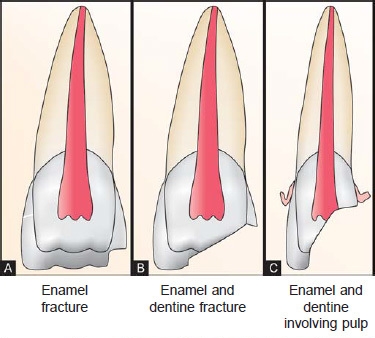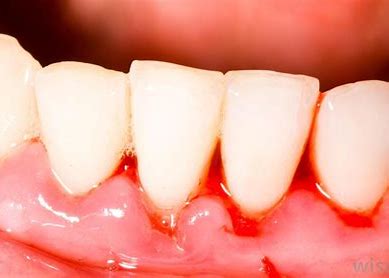Oral health care is an essential part of maintaining overall health and hygiene among children. The early childhood years are crucial in establishing good oral hygiene practices that can last a lifetime. Parents and caregivers play a critical role in promoting good dental hygiene, and it is essential to make sure that children develop healthy oral care habits from an early age.
The Basics of Oral Health Care in Children
Oral health care can begin as soon as a child is born. Wiping the infant’s gums with a clean cloth will keep the mouth free of bacteria. When the child’s first tooth appears, brushing should start with non-fluoride toothpaste. Parents must start brushing their child’s teeth as soon as the first tooth appears, which is usually around six months of age.
As the child grows, daily brushing and flossing become more important. Parents should help their child brush their teeth twice a day using a soft-bristled toothbrush and fluoride toothpaste. Children should use only a pea-sized amount of toothpaste until they reach the age of three to avoid ingestion of fluoride. Parents should continue to supervise their child’s brushing and flossing until they turn eight or nine years old.
Preventing Tooth Decay in Children
Tooth decay is a common dental problem among children. Many factors can contribute to tooth decay, including diet, genetics, and oral hygiene habits. Parents can take several steps to reduce their child’s risk of developing tooth decay.
Limit sugary foods and drinks: Sugary foods and drinks can lead to tooth decay. Children should avoid eating sugary foods and drinks, and parents should limit their consumption.
Promote healthy eating habits: Encourage children to eat a balanced diet rich in fruits, vegetables, and whole grains. These foods are good for oral health and help to prevent tooth decay.
Regular dental checkups: Regular dental checkups with a pediatric dentist can help detect any dental problems early on, which will prevent more serious dental problems down the road.
Fluoride Treatments: Most dental offices apply fluoride during regular check-ups. Fluoride can help strengthen the enamel, making it more resistant to decay.
Sealants: Sealants are a thin coating that is applied to the back teeth. The sealant acts as a barrier to prevent bacteria from causing decay. The American Dental Association recommends that children get sealants as soon as their permanent molars come in, usually between the ages of 6 and 12.
Oral Health Care as Children Grow
As children grow, their oral hygiene habits should also develop. Here are some things to keep in mind as children age:
Teach Proper Brushing and Flossing Techniques: As children grow older and become more independent, they should learn how to brush and floss their teeth properly. Parents should make sure children understand how to brush all teeth surfaces thoroughly and encourage them to floss daily.
Make Dental Appointments a Priority: Regular check-ups become even more crucial as children get older. Parents should make sure their child visits the dentist at least twice a year.
Monitor Teeth Alignment: Teeth alignment can be a significant issue in a child’s oral health care as they grow. Parents should keep an eye on how their child’s teeth are developing, watching for anything out of the ordinary or any issues that may arise. When a child reaches the age of 7, a dentist or orthodontist should check the teeth as they continue to grow to ensure that things are developing properly.
Conclusion
Oral health care in children is essential to ensure good health and hygiene. Parents play a significant role in establishing healthy oral hygiene habits for their children, including daily brushing and flossing, limiting sugary foods and drinks, regular dental check-ups, and preventative treatments such as fluoride and sealants. Supervising children’s brushing and flossing until they are eight or nine years of age is highly recommended. Proper dental hygiene habits established in childhood will set children up for healthy oral hygiene for the rest of their lives.
FAQs
1. When should I start caring for my child’s oral health?
You should start caring for your child’s oral health as soon as the first tooth appears, usually between 6 to 12 months of age.
2. How can I clean my child’s teeth?
You can use a soft-bristled brush and water to clean your child’s teeth, especially if they are younger than 2 years old. For children older than 2 years, you can use a small amount of fluoride toothpaste (pea-sized) and assist them in brushing their teeth.
3. Are pacifiers and thumb-sucking harmful to my child’s oral health?
Prolonged pacifier use or thumb-sucking can cause changes in the shape of the roof of your child’s mouth and the position of their teeth. It is recommended to limit the use of pacifiers or thumb-sucking after the age of 2 years.
4. When should my child first see a dentist?
Your child should have their first dental visit by their first birthday or as soon as the first tooth appears, whichever comes first.
5. How can I prevent tooth decay in my child?
You can prevent tooth decay in your child by promoting good oral hygiene habits, limiting sugary foods and drinks, and ensuring they receive regular dental check-ups.
6. Should I give my child fluoride supplements?
Fluoride supplements may be recommended by your dentist if your child is not getting enough fluoride from drinking water and other sources. However, you should always consult with your dentist before giving your child any fluoride supplements.
7. Are sealants beneficial for my child’s teeth?
Dental sealants can be a beneficial preventive measure for children’s teeth. They are thin, protective coatings that are applied to the chewing surfaces of the molars to prevent decay by sealing out bacteria and food particles.
8. How can I teach my child to maintain good oral health?
You can teach your child to maintain good oral health by setting a good example, promoting healthy eating and drinking habits, supervising their brushing and flossing, and making dental check-ups a regular part of their healthcare routine.


